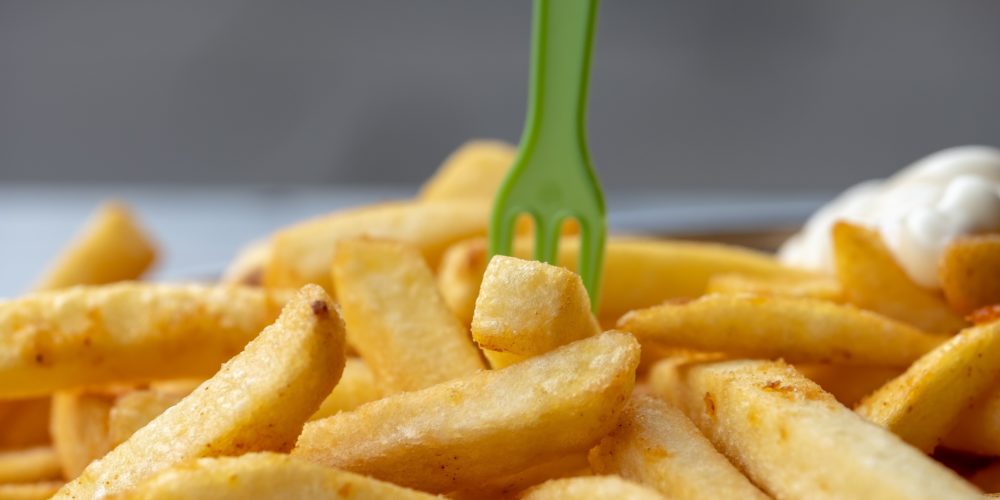Thinking like a strategist about potatoes and chips

Many years ago I was sitting in a hotel abroad. I was part of an international multidisciplinary team advising that country’s government on its infrastructure strategy. We were about to have lunch.
The order was made. We chatted. In a short while, though, our waiter was back with news. “We can’t offer any of the orders that have chips,” he said. I sat back, surprised. “You don’t have potatoes?” I asked. “Oh, we have plenty of potatoes,” was the reply. “But no chips.”
Curiouser and curiouser.
I followed up: “Why can’t you turn the potatoes into chips? Is it a size thing with the potatoes you have?” He shook his head. “No, sir, we have the usual potatoes.” Hmm. What could be the problem, then? Finally, he came out with it. “You see, our chip-cutting machine is broken.”
Aha. I asked the waiter if someone in the kitchen still remembered how to cut chips with a knife, the old way. He said he would go and ask. Long story short, we got our fries. Hand-cut.
I remembered this experience when recently, the issue of potatoes and fries loomed large, this time right here in Kenya. The popular multinational fast-food chain, KFC, suddenly announced that they had run out of fries. Say what? Said everyone else. Why? How? Oh, you know. International supply chain issues. Etc. Sorry…
It turned out that KFC were not sourcing any of their chips from Kenyan potato farmers. They were buying them overseas, already cut and frozen, and shipping them over. The outrage was immediate. What’s wrong with our potatoes, screamed Kenyans all over the web? We grow so many, so why don’t you use them? Calls to boycott KFC began to gain traction. The multinational quickly announced that it would explore options to use locally grown spuds.
This is fascinating, on a number of counts. If we think about the issue calmly, some deeper points about strategy, self-sufficiency, and sustainability will emerge.
First, let me say—unpopular though this may be—that KFC should be free to make their own decisions about sourcing. We don’t need government intervention to help Kenyan potato-growers; nor do we need outrage mobs to force a change. If KFC deems it fit to source internationally, and there’s a strong business case to be made for global supply chains—so be it. Let them live or die by their decisions.
Equally, fast-food consumers have every right to hold strong feelings about their fries and potatoes. Those feelings might be about patriotism, yes, but they might also be about quality, and availability, and price. Diners are free to vote with their wallets, and frequent those vendors who press the right buttons for them.
As I explain in my new book, however, good strategists always look up from their daily grind—to see a bigger picture. And they look ahead—to anticipate the future, and even to shape it. What might “up and ahead” mean for chips?
First, from the multinationals’ side. We have had a couple of decades of rapid and largely untrammelled globalization. This has brought some benefits, in the shape of consumer choice, and often lower prices. It has also created new problems, largely hidden from view: exploitation of the poorest, whose cheap labour often drives the economics of globalization; governments using unfair subsidies to game the markets; and some very questionable environmental practices that have done untold harm to the planet.
The coronavirus pandemic is a forced pause in this process. If I were advising a multinational, I would be telling them to stop and take stock. Are far-flung supply chains still the best way to deliver value? Are national self-sufficiency and sustainable business models becoming impossible to ignore? Are local stakeholders and ecosystems a good buffer to have in your strategy? Should we now all be thinking about shared local value for the longer term—without being forced to? Could this actually become a winning strategy for us?
Like the kitchen team in my travels way back then, boards and top teams can also become stuck in preset ways of doing things, with no one questioning the logic. No chip-maker? Therefore no chips. No pre-cut, uniform chips? Therefore no local sourcing. No direction from head office? Therefore no change.
Equally, on the side of the Kenyan farmer, some more imaginative thinking is needed. KFC being forced to buy your potatoes is a very short-term gain. KFC—and every other branded fries seller within our borders and beyond—choosing to buy your potatoes is where the prize lies. And that means raising your game; using science to boost quality and consistency; providing traceability; going downstream from just growing to processing. And it means voting for governments that can create the conditions for the longer-term success of their people.
Up for that?
(Sunday Nation, 23 January 2022)

Buy Sunny Bindra's new book
The X in CX
here »
Popular Posts
- Bruise, mend, continueAugust 31, 2025
- The cost of pretenceSeptember 7, 2025
- Born knowing the waySeptember 21, 2025
- The art of the CX rescueSeptember 14, 2025
- Some lives are lived on the peripheryAugust 3, 2025















